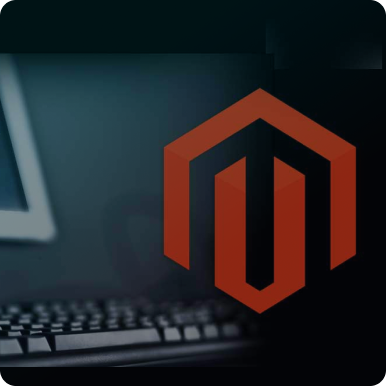How To Become A Successful E-Commerce Developer.


Creating an e-commerce site on Magento might seem like a daunting task, but it doesn’t have to be. With the right team of developers and the right tools, it can be a manageable and rewarding process. Of course, it requires some research and technical knowledge, but don’t worry; you don’t have to do it alone.
In this digital age, e-commerce developer skills are highly sought-after professionals responsible for developing, maintaining, and improving online stores. These talented individuals play a vital role in building and maintaining websites that provide customers with a seamless shopping experience. They have the expertise to create custom themes, add exciting features, and ensure that the website runs smoothly and is optimised for search engines.
What E-Commerce Developer Skills Are Needed To Succeed?
Building an e-commerce website is no small feat. It involves a lot of moving parts, from designing a user-friendly interface to ensuring everything runs smoothly and securely. Here are some of the most common e-commerce developer skills you may find in an e-commerce developer job description.
Strong knowledge of the Magento platform
When thinking about how to become a developer, having a strong grasp of Magento’s architecture is the basic foundation for developing custom functionalities and integrating third-party extensions. Having prior knowledge of Magento and its functionalities is one of the key e-commerce developer skills.
Developers need to understand how the platform’s different components work together, including its front-end and back-end systems, database structure, and APIs. Additionally, knowledge of Magento’s core modules and how they interact with each other is essential for building custom modules.
E-commerce developers should also be familiar with Magento’s features and capabilities to fully utilise the platform’s potential. Magento offers a range of features, including multi-store capabilities, flexible pricing rules, and advanced search functionality. Another key e-commerce developer skills is knowing how to leverage these features to provide optimal user experiences and meet the specific needs of their clients.
Web development experience
In addition to having a good understanding of the Magento platform, e-commerce developers who work with Magento should also have a solid foundation in programming languages such as PHP, HTML, CSS, and JavaScript. These languages are essential e-commerce developer skills for building custom functionalities and integrating third-party extensions. Those wondering how to become a developer should be proficient in these languages and others that may be outlined in an e-commerce developer job description.
Understanding programming concepts such as object-oriented programming and design patterns is also a key e-commerce developer skill for building efficient and maintainable code.
Software development best practices are also critical skills for those wondering how to become a developer. Version control systems like Git help developers keep track of changes made to the code and enable collaboration with other team members. Debugging and testing are also important e-commerce developer skills for developers, as they ensure the code is free of bugs and performs optimally.
Problem-solving and communication skills
Excellent problem-solving skills are also core e-commerce developer skills. They need to be able to troubleshoot issues that arise and find solutions quickly and efficiently. This requires a strong analytical mindset and the ability to think creatively to develop innovative solutions to complex problems.
Effective communication is also essential for Magento developers. They work with clients, designers, project managers, and other team members to build and maintain websites. Good communication skills help ensure everyone is on the same page and that projects are completed on time and to the client’s satisfaction. Communication deliverables should also be outlined in an e-commerce developer job description.

What tools do e-commerce developers need to utilise?
Magento developers use a range of tools to create and maintain Magento websites. These tools help developers work efficiently, collaborate with team members, and ensure high-quality code. If you’re wondering how to become a developer then having built e-commerce developer skills within these tools will be key to your success.
Magento 2
Magento 2 is the latest version of the Magento platform, and developers need to be familiar with its features, modules, and extensions. Magento 2 offers improved performance, scalability, and security compared to earlier versions of the platform.
Integrated Development Environment (IDE)
IDEs such as PhpStorm, Eclipse, or NetBeans provide an efficient development environment for Magento developers. These tools automate coding tasks and offer debugging features that help streamline development. IDEs are customisable and can be configured to suit the developer’s preferences.
Magento extensions
There are several Magento extensions available that can help developers enhance their development workflow. Magento Debugger Extension helps to debug issues in the codebase, while the Magento Code Quality Extension helps to maintain code quality. These extensions can save developers time and effort by automating tasks and ensuring code quality. Any basic developer role will require you to have knowledge of CMS extensions, as these are well-known e-commerce developer skills.
Testing tools
Testing tools, such as PHPUnit or Selenium, help developers test their code and ensure it works as expected. These tools help to identify and fix bugs before they are deployed to the live website, ensuring that the website is stable and reliable. Having reliable e-commerce developer skills with testing tools will be a great aid in securing a developer role.
Version control software
Version control software like Git or Subversion is essential for managing code changes and collaborating with other developers. These tools allow developers to track changes made to the codebase, work on different branches, and merge changes back into the main codebase.
Project management tools, such as Jira or Trello, can help developers manage their workflow and collaborate with other team members. These tools help developers track tasks, assign responsibilities, and communicate with team members, ensuring that projects are completed on time and to a high standard. Most e-commerce developer job descriptions will have these key skills listed.

What are the responsibilities of an e-commerce developer?
When it comes to job responsibilities, e-commerce developers are typically divided into two categories: front-end and back-end developers.
Front-end developers
Front-end e-commerce developers are responsible for designing and implementing the visual aspects of the website. They work with the website’s layout, colour scheme, typography, and other design elements. They use tools such as HTML, CSS, and JavaScript to create a responsive and visually appealing website. They also ensure that the website is user-friendly and easy to navigate.
Back-end developers
Back-end e-commerce developers, on the other hand, work behind the scenes. They are responsible for the technical aspects of the website. They work on the server side of the website, adding custom functionality and integrating third-party tools and services. They use programming languages such as PHP and MySQL to create custom modules and extensions for the Magento platform. They also ensure the website is secure, scalable, and optimised for performance. This is a role where most of the key e-commerce developer skills will be required.
Full-stack developer
In some cases, e-commerce developers may have both front-end and back-end responsibilities. These developers are called full-stack developers and have a comprehensive understanding of both front-end and back-end development.

Partner with Skilled E-Commerce Developers to Build A Successful Website
Developing an e-commerce site on Magento can be a real head-scratcher. It’s understandable if you find it confusing and daunting because it’s a complex process requiring much expertise and effort. To build a successful website, partnering with someone who has e-commerce developer skills is key!
At Envisage Digital, we understand that creating a successful e-commerce website requires a lot of expertise and dedication. That’s why we have a team of skilled e-commerce developers who are passionate about helping businesses of all sizes thrive in the competitive e-commerce landscape. We believe in working closely with our clients to bring their vision to life and delivering tailored solutions that meet their unique needs.
With our commitment to exceptional customer service and attention to detail, you can trust us to build a professional website that reflects your brand and helps you achieve your goals. Our team is guided by the belief that “people matter,” and we make it our priority to handle every project with care, commitment, and a sense of camaraderie. Whether you’re starting from scratch or looking to improve an existing site, we’re here to help you succeed.
If you are looking to start your career as an e-commerce developer or if you think you have all the e-commerce developer skills required of a stack developer, have a look at our e-commerce developer job descriptions and apply today.

Frequently Asked Questions About E-Commerce Developer Skills
Employment for e-commerce developers is projected to grow 16% between 2022-2032, much faster than the average across all occupations. This is due to the shift we are seeing in digital marketing and digital shopping experiences.
An e-commerce developer is mainly responsible for the technical aspects of an online store, such as its performance, scalability, and security. In addition, an e-commerce developer will also work closely with the store’s owner to help the digital performance of the store and its profitability.
Latest Posts
Everything you need to become a successful eCommerce developer
Adobe has recently launched Magento 2.4.6, the most advanced version of the Magento Commerce and Open Source platform,...
Read the full blogEverything You Need to Know About the Magento 2.4.6 Update.
The day to day life of being a eCommerce developer and what it entails.
Read the full blogA Deep Dive into Magento’s Release Schedule
Dive into the heart of the Magento release schedule overhaul, uncovering its monumental shift and direct benefits for...
Read the full blog






